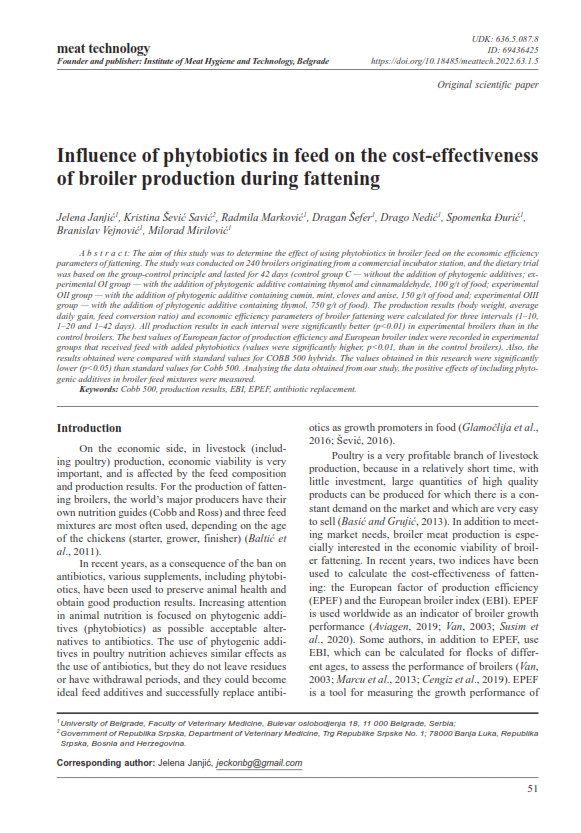Influence of phytobiotics in feed on the cost-effectiveness of broiler production during fattening
Abstract
The aim of this study was to determine the effect of using phytobiotics in broiler feed on the economic efficiency parameters of fattening. The study was conducted on 240 broilers originating from a commercial incubator station, and the dietary trial was based on the group-control principle and lasted for 42 days (control group C — without the addition of phytogenic additives; experimental OI group — with the addition of phytogenic additive containing thymol and cinnamaldehyde, 100 g/t of food; experimental OII group — with the addition of phytogenic additive containing cumin, mint, cloves and anise, 150 g/t of food and; experimental OIII group — with the addition of phytogenic additive containing thymol, 750 g/t of food). The production results (body weight, average daily gain, feed conversion ratio) and economic efficiency parameters of broiler fattening were calculated for three intervals (1–10, 1–20 and 1–42 days). All production results in each interval were significantly better (p<0.01) in experimental broilers than in the control broilers. The best values of European factor of production efficiency and European broiler index were recorded in experimental groups that received feed with added phytobiotics (values were significantly higher, p<0.01, than in the control broilers). Also, the results obtained were compared with standard values for COBB 500 hybrids. The values obtained in this research were significantly lower (p<0.05) than standard values for Cobb 500. Analysing the data obtained from our study, the positive effects of including phytogenic additives in broiler feed mixtures were measured.





